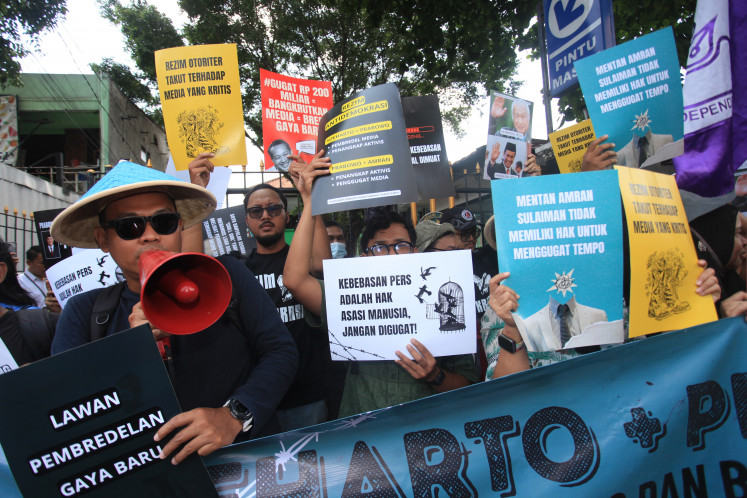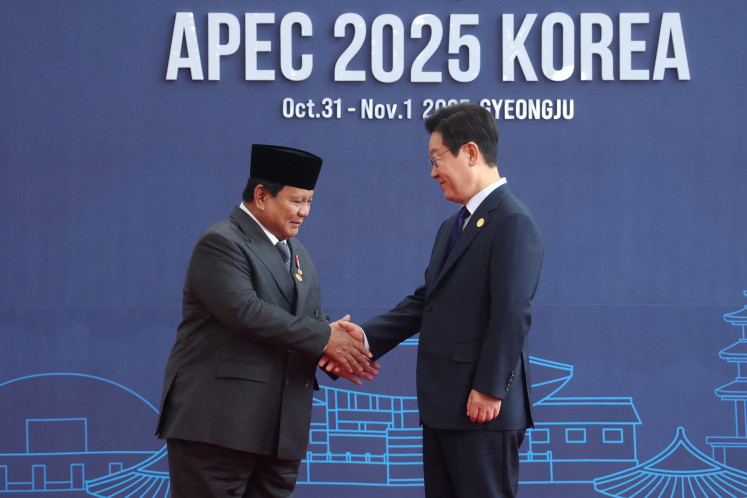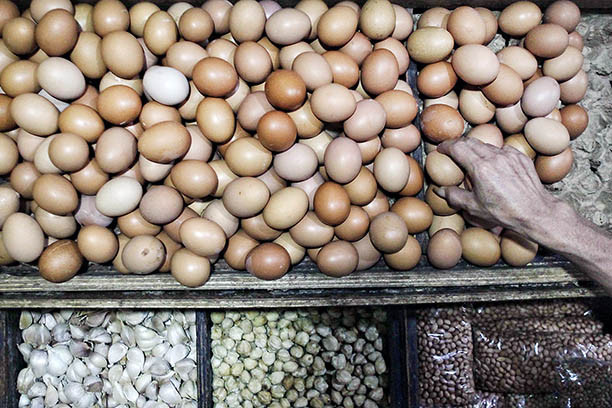Popular Reads
Top Results
Can't find what you're looking for?
View all search resultsPopular Reads
Top Results
Can't find what you're looking for?
View all search resultsLack of impartiality threatens rule of law in Indonesia
Rule of law in the country has remained elusive, with a lack of judicial independence having marred the legal process, a study released on Tuesday by the Indonesian Legal Roundtable (ILR) has found
Change text size
Gift Premium Articles
to Anyone
R
ule of law in the country has remained elusive, with a lack of judicial independence having marred the legal process, a study released on Tuesday by the Indonesian Legal Roundtable (ILR) has found.
ILR executive director Todung Mulya Lubis said his side was struck by its finding that many judges were not objective when handing down a verdict, resulting in weaker performance in terms of judicial independence last year, to 1.44 points from 1.48 in 2015.
Judicial independence is among five indicators measured in the Indonesian Rule of Law Index, which also found that the country’s 2016 rule of law index last year was slightly down to 5.31 points, from 5.32 in the 2015 index, despite a commitment by the government to uphold the law.
“Many parties tried to interfere with judicial authority. While interference could have actually been prevented,” Todung said on Tuesday, adding that, “Remuneration is not the problem [that causes judicial bias] [...] 60 percent of our respondents said judges’ pay was enough.”
Last year alone, the country saw at least five bribery cases implicating both judges and court officials come to light, tainting the ongoing judiciary reform started by the Supreme Court in the early 2000s.
A case in Bengkulu in May 2016 implicated lower court judges Janner Purba and Toton, who along with a court clerk, were arrested by the Corruption Eradication Commission (KPK) for bribery. Janner also oversaw cases at a corruption court in the province.
While in June, the KPK named North Jakarta District Court clerk Rohadi a suspect on allegations of accepting Rp 250 million from two lawyers of convicted child molester Saipul Jamil in bribes paid to coax the panel of judges into rejecting prosecutors’ calls to hand down harsher punishments for Saipul.
The ILR’s index measured five indicators considered by the Jakarta-based group as crucial to good law practice — independence of the judges, government’s obedience to the law, access to justice and human rights, and formal legality on how a law is produced and familiarized. In the study, the ILR interviewed 120 law experts and assessed government documents.
Indonesia, according the ILR study, needs to at least earn 6 points in the index to reach a level comparable to countries that have “established” rule of law, such as those in Western Europe.
Besides the national index, the ILR also looked into 20 provinces. South Kalimantan came out on top with 6.52 points, followed by East Java and East Kalimantan in second and third place with 6.37 and 6, respectively. The bottom three comprised Papua, West Java and North Sulawesi with 4.25, 4.35 and 4.77,
respectively.
“Using the assumption that 6 is [the minimum requirement for] a good index, only three provinces fulfill the qualifications of the good rule of law index,” Todung said.
Todung, however, could not elaborate on the reasons why the three provinces had high rule of law, but he said Papua was at the bottom of the list because the province had been marred with poverty.
The country’s poor rule of law was also shown in a recent study by the United States-based World Justice Project (WJP), in which Indonesia ranked 61 out of 113 countries, far below its neighbors Singapore and Malaysia, which ranked ninth and 56th, respectively. The study assessed the practice of law in their respective jurisdictions.
Sukma Violetta of the Judicial Commission said some of the findings in the ILR study were in fact parallel with its own study, including a finding that shows some judges were biased in handing down verdicts.
“There are factors of ‘likes and dislikes’ that were also captured in our study. There were, for example, some veteran judges who tried to prevent dissenting opinions [while overseeing a case],” said the deputy chairman of the commission, which is tasked with monitoring judges.










